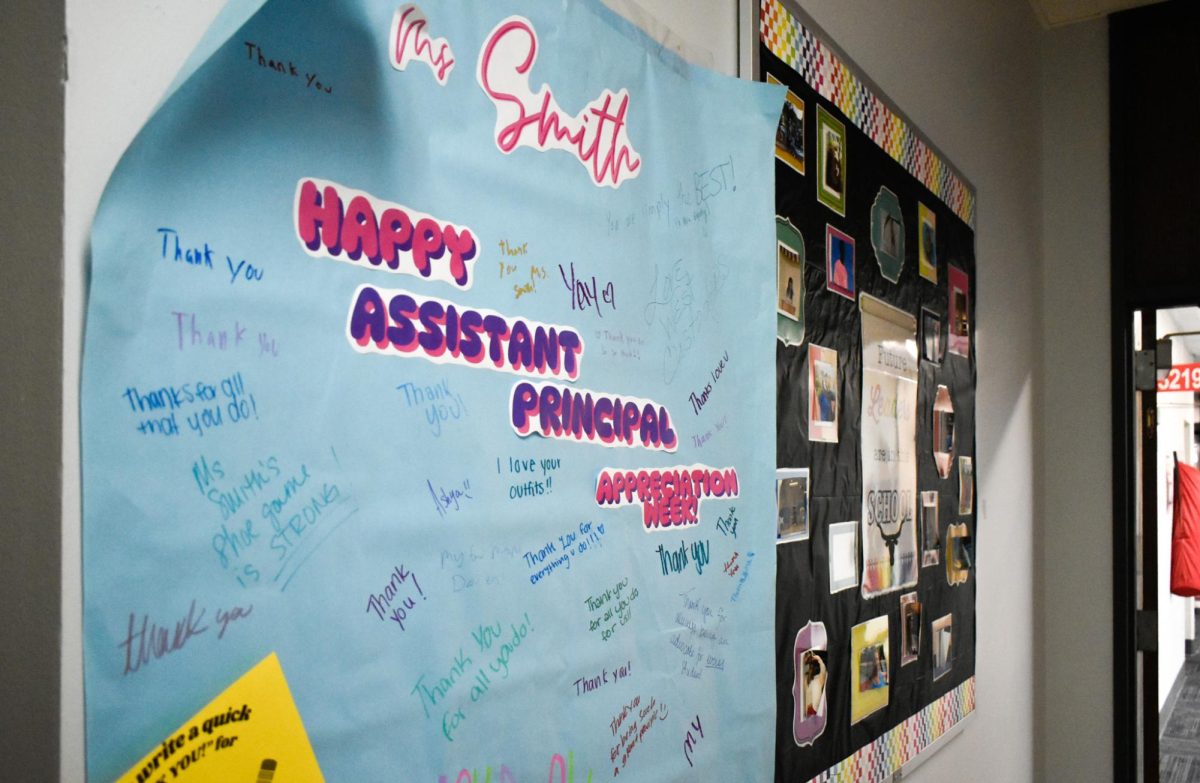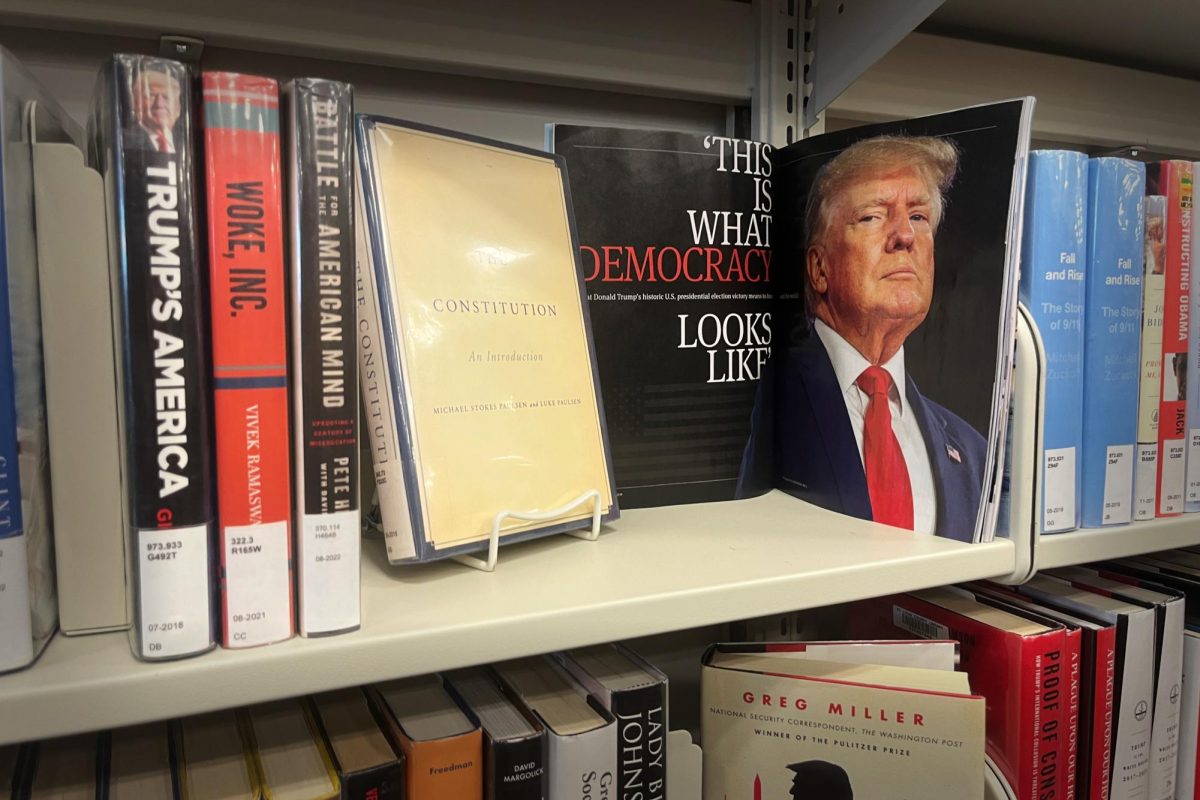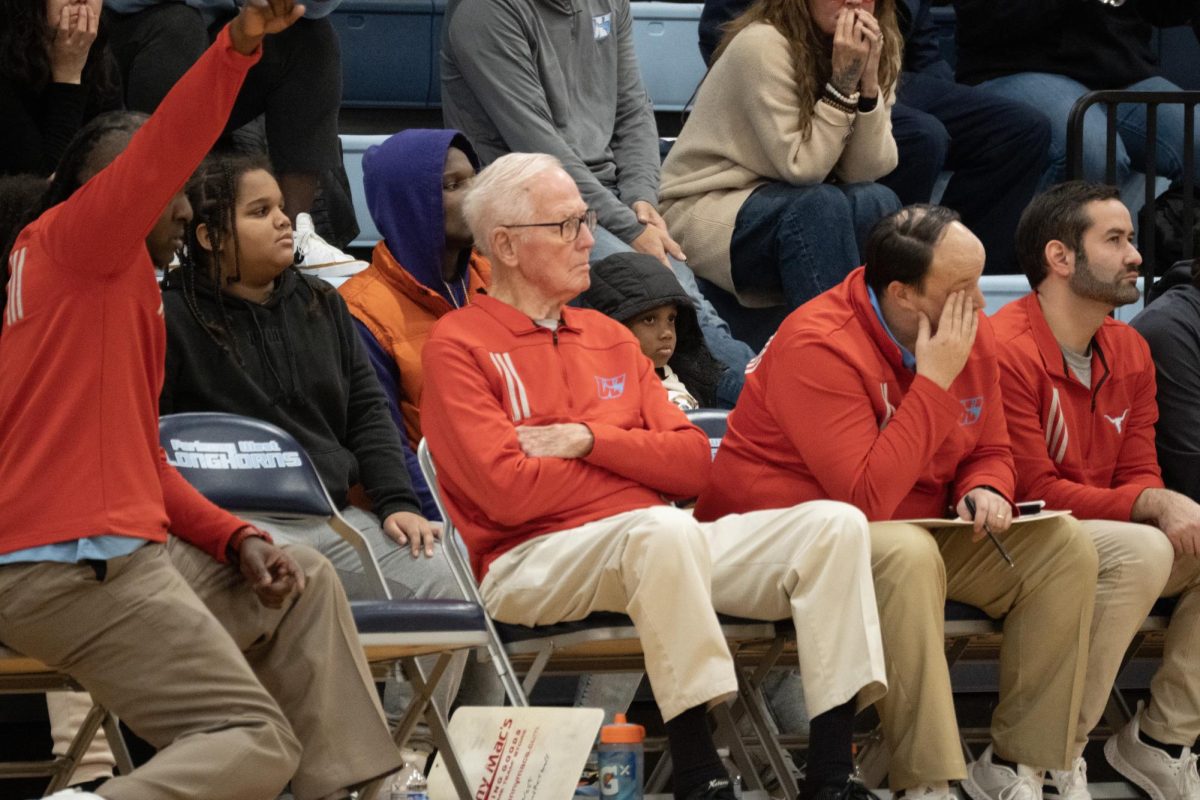It’s award season. From the paparazzi clamoring for celebrity photos to internet debacles over the best-dressed attendees or the works that are most likely to win, the Golden Globes kicked off this year’s set of award shows with flair, as elegantly-dressed celebrities lined the red carpet and prepared for an evening of celebration.
However, nothing could have prepared them for the unpredictable night ahead of them. On the surface, there were many things to celebrate about the 81st Golden Globes: Lily Gladstone was the first Indigenous person to win the award for Best Actress, and “Barbie,” a lighthearted, but at its core, powerful feminist film, snagged nine nominations. By the end of the night, the movie ended up winning the Golden Globe for Cinematic and Box Office Achievement, and one of its songs — “What Was I Made For?” by Billie Eilish and Finneas O’Connell — secured the Best Original Song – Motion Picture award. Various incredibly wholesome moments took place as well, like Jennifer Lawrence and Emma Stone celebrating each other in a meeting.
But despite the many positive things about the night, news anchors the next morning could only talk about one thing — comedian Jo Koy’s monologue.
Being chosen within two weeks of the event, Koy opened his speech with a standard “It’s an honor to be here. I used to watch these shows as a kid” type of intro. He then proceeded to talk about “The Bear” and transitioned to “Oppenheimer.” And, to quote, he said, “‘Oppenheimer’ is based on a 721-page, Pulitzer Prize-winning book about the Manhattan Project. And ‘Barbie’ is on a plastic doll with big boobies.”
Cut to “Barbie” director Greta Gerwig, who produced a small smile and a head nod. But Koy wasn’t done. As the camera panned to unimpressed looks from “Barbie” actors Margot Robbie and Ryan Gosling, he proceeded to say, “A key moment in ‘Barbie’ is when she goes from beauty to bad breath, cellulite and flat feet — or what casting directors like to call ‘character actor.’”
In the background of the shot, singer-songwriter and actress Selena Gomez put her head in her hands, accompanied by a few other “ouch” reactions.
And who could blame her? Though Koy said he binged every nominee film and show days before the event, he steered away from everything that “Barbie” stands for. Yes, the two-hour film is based on a toy, but it goes so far beyond just a plastic doll. The film celebrates humanity, it honors equality — no matter the gender — and it calls out some deep-rooted problems in our world in a beautifully digestible manner.
“A movie like that was very important to make because Barbie is supposed to be a character that represents a woman, and that inspires the younger generation to be anything they want to be,” Feminist Club executive aide and sophomore Clara Lazarini said. “Making a joke like that makes it seem like [Barbie is] just a doll, but it’s so much more than that for girls. So, [the joke] distracts from the main meaning of the movie.”
So, to rework the outrightly feminist movie, Koy somehow managed to circle it back to women’s bodies. You didn’t miss your mark, Koy. You missed the entire point of the movie.
After the unsolicited negative reactions from the crowd, Koy turned to laugh, quickly and awkwardly adding, “Some [jokes] I wrote, some others wrote… I got the gig 10 days ago. Do you expect a perfect monologue? Shut up. You’re kidding me, right? I wrote some of these, and they’re the ones you’re laughing at.”
So, Koy didn’t get the laughs he wanted. He’s a comedian. Surely not every joke he makes lands. And even if he didn’t write them, he still ultimately chose to perform them. Koy only continued to make things more uncomfortable, mentioning actor Barry Keoghan’s privates, a series of “white people” jokes and — yet another — joke about singer-songwriter Taylor Swift’s dating life.
Resorting to joking about genitalia, race or one of the most publicly-covered celebrity relationships of the year is a clear sign that Koy and the writers must have gotten stuck brainstorming anything remotely funny.
If we stand by and tolerate sexist, uncomfortable and, honestly, unfunny jokes, then we are standing by and watching it become much more incorporated in our society. Think of the little kid watching, waiting to see Barbie and Ken again on TV, only to witness a joke about “big boobies.” What will that kid take away from what was once a fun and enlightening movie from then on? Degrading comments like the ones Koy made need to be addressed because if we let them fly under the radar, they will just become all the more acceptable. Feminist Club recently covered the Golden Globes in a meeting, discussing how to stand up against sexism in the workplace.
“One way to fight against [statements like that] is definitely to speak about ‘Barbie’ and not only the movie but the lesson that women should be more accommodated in those spaces. We need to bring more awareness to women in their fields of job and make sure that women feel included in those spaces,” Lazarini said.
But degrading “Barbie” wasn’t where the spectacle stopped. Celebrities were asked in interviews to comment on the bodies of their fellow colleagues, like “The Bear”’s Ayo Edebiri on the red carpet before the Golden Globes. After being shown a poster of co-star Jeremy Allen White’s recent Calvin Klein photoshoot, Access Hollywood asked her thoughts on it, to which she uncomfortably responded, “I’m happy for him. That’s my boy. I do feel like I want people to understand that he’s my coworker.”
In any other industry, being asked to comment on a colleague’s provocative photos would be utterly unacceptable. Celebrities, despite being in the public eye, should not be expected to tolerate an unprofessional work environment. Not only does it make things awkward for both parties, it’s awkward for the audience, too.
Still, the Golden Globes wasn’t the only event that attracted sexist remarks. The “Best Original Song” category at the Critics Choice Awards went to Gosling for “I’m Just Ken,” a satirical song in “Barbie” that plays on the effect of patriarchy on men. The song ended up beating “What was I made for?,” a beautiful ode to the struggles of womanhood. Even Gosling’s puzzled reaction, which was similar to so many of the audience’s, was plastered over the internet.
Furthermore, the Oscars nominations excluded Robbie and Gerwig, the lead and director of “Barbie,” which became the highest-grossing movie of 2023, while highlighting Gosling as a nominee in the Best Supporting Actor category. In addition, “Barbie”’s numerous nominations place Gerwig as the first female director with three top-prize movies. If Gosling was nominated for “Barbie,” shouldn’t that have guaranteed a spot for female nominations? Gosling himself was even disappointed in the nominees, stating, “There is no Ken without Barbie, and there is no Barbie movie without Greta Gerwig and Margot Robbie.”
These award shows are events that should celebrate representation, beautifully artistic filmmaking and music, and the talent of people from around the world. Instead, the Golden Globes and many other recent shows were a pitiful, painful and sadly unsurprising attack on the very values they base their nominations on.
Sure, this is just another example of celebrity drama. Sure, this level of fame comes with its downsides. Sure, these people face the spotlight and several forms of scrutiny daily. But in the same way that celebrity fashion eventually makes its way into stores worldwide, their comments and behavior make their way into our lives as well. In a time of increasing idolization and online attention toward these idols, the people we watch are the people who affect us the most. We have to choose carefully, and we must address hurtful comments when they are made. Toleration leads to integration, and we can’t afford the acceptance of sexism in our lives.
In addition to calling out sexism, we need to act further. Accommodating women in workplaces is necessary in order to create an equal working environment, and that applies to every field. Initiating equality should be something that everyone strives for, not only for the sake of women today but for the upcoming generations who are watching and learning from our example.
“Speaking about bringing awareness makes it so not only [do] women feel more included in jobs [but in] society as a whole. It helps younger girls [become] more confident and feel like they belong in the space and feel safe,” Lazarini said.





![Red, white and blue, the American flag holds the values of our democracy. The fight that we once endured has returned, as student journalists and senior correspondents across the country are losing their voices due to government control. “[Are] the White House and [the] government limiting free speech [and] freedom of the press? Yes [they are],” chief communications officer of the Parkway School District and former journalist Elisa Tomich said.](https://pwestpathfinder.com/wp-content/uploads/2025/03/Untitled-design-14.jpg)
![A board in the Parkway West counseling department displays pennants of selective universities. With a wide range of students interested in attending, it’s important that these schools have clear priorities when deciding who to admit. “[Washington University] had the major that I wanted, psychology, philosophy, neuroscience. That's a holistic study of the brain, and [WashU is] the only college in the world that offers that. That's the main reason I wanted to go; I got into that program,” senior Dima Layth said.](https://pwestpathfinder.com/wp-content/uploads/2025/02/Flag-1.png)

![Within the U.S., the busiest shopping period of the year is Cyber Week, the time from Thanksgiving through Black Friday and Cyber Monday. This year, shoppers spent $13.3 billion on Cyber Monday, which is a 7.3% year-over-year increase from 2023. “When I was younger, I would always be out with my mom getting Christmas gifts or just shopping in general. Now, as she has gotten older, I've noticed [that almost] every day, I'll open the front door and there's three packages that my mom has ordered. Part of that is she just doesn't always have the time to go to a store for 30 minutes to an hour, but the other part is when she gets bored, she has easy access to [shopping],” junior Grace Garetson said.](https://pwestpathfinder.com/wp-content/uploads/2024/12/DSC_0249.JPG-1200x801.jpg)

![Senior Sally Peters stands in the history hallway, contemplating her choices in the 2024 United States and Missouri elections on Nov. 5. As a member of Diplomacy Club, Peters has discussed key candidates and issues in contemporary American politics. “[As students], we're starting to become adults. We're realizing how much the policies that are enforced and the laws that make it through the House and Senate are starting to affect us. [Opportunities such as] AP [U.S.Government] and Diplomacy Club [make elections feel] a lot more real,” Diplomacy Club vice president and senior Nidhisha Pejathaya said.](https://pwestpathfinder.com/wp-content/uploads/2024/10/Flag-1-1.png)
![Mounting school pressure can leave many students overworked and overstressed. Schools must give students the necessary resources to help assuage student mental health issues and prevent the development of serious crises. “The biggest thing [schools] can do [to protect student mental health] is offer more time [to do work], like a study hall, or offer more support from teachers so that students don't feel stressed out and can get help in areas that they need,” senior Bhavya Gupta said.](https://pwestpathfinder.com/wp-content/uploads/2024/09/unnamed-4.jpg)
![Like many students, sophomore Medina Nanic experiences pressure to do well in school. Through continuous success and achievements, West has developed a high academic standard for students. “Because we’re seen as one [of] the better schools, we have higher standards than the [schools] who aren’t ranked as high. There’s a lot of pressure on students to do [well] and live up to those standards,” Nanic said.](https://pwestpathfinder.com/wp-content/uploads/2024/05/DSC_0029-2-1200x800.jpg)
![Junior Fiona Dye lifts weights in Strength and Conditioning. Now that the Trump administration has instituted policies such as AI deregulation, tariffs and university funding freezes, women may have to work twice as hard to get half as far. "[Trump] wants America to be more divided; he wants to inspire hatred in people,” feminist club member and junior Clara Lazarini said.](https://pwestpathfinder.com/wp-content/uploads/2025/05/Flag.png)
![As the Trump administration cracks down on immigration, it scapegoats many immigrants for the United States’ plights, precipitating a possible genocide. Sophomore Annabella Whiteley moved from the United Kingdom when she was eight. “It’s pretty scary because I’m on a visa. When my visa expires next year, I’m not sure what’s going to happen, especially with [immigration] policies up in the air, so it is a concern for my family,” Whiteley said.](https://pwestpathfinder.com/wp-content/uploads/2025/05/DSC_0077-7copy.jpg)
![Shifting global trade, President Donald Trump’s tariffs are raising concerns about economic stability for the U.S. and other countries alike. “[The tariffs are] going to pose a distinct challenge to the U.S. economy and a challenge to the global economy on the whole because it's going to greatly upset who trades with who and where resources and products are going to come from,” social studies teacher Melvin Trotier said.](https://pwestpathfinder.com/wp-content/uploads/2025/05/MDB_3456-1200x800.jpg)

![Pitching the ball on Apr. 14, senior Henry Wild and his team play against Belleville East. Wild was named scholar athlete of the year by St. Louis Post-Dispatch after maintaining a high cumulative GPA and staying involved with athletics for all of high school. “It’s an amazing honor. I feel very blessed to have the opportunity to represent my school [and] what [it] stands for,” Wild said.](https://pwestpathfinder.com/wp-content/uploads/2025/05/unnamed-6-1200x714.jpg)
![Freezing in their position, the Addams Family cast hits the “rigor mortis” pose after cast member and senior Jack Mullen, in character as Gomez Addams, calls out the stiff death move. For the past four months, the combined company of cast members, orchestra pit, crew and directors all worked to create the familial chemistry of the show. “I’m excited for [the audience] to see the numbers, the music, the scenes, but I also just love all the technical aspects of it. The whole spectacle, the costumes, makeup and the people that put in the work backstage in order to make the show successful on stage. I’m excited for people to see and appreciate that,” Mullen said.](https://pwestpathfinder.com/wp-content/uploads/2025/03/DSC0116-1200x800.jpg)

![Some of the most deadly instances of gun violence have occurred in schools, communities and other ‘safe spaces’ for students. These uncontrolled settings give way to the need for gun regulation, including background and mental health checks. “Gun control comes about with more laws, but there are a lot of guns out there that people could obtain illegally. What is a solution that would get the illegal guns off the street? We have yet to find [one],” social studies teacher Nancy Sachtlaben said.](https://pwestpathfinder.com/wp-content/uploads/2025/01/DSC_5122-1200x800.jpg)
![Complex global supply chains supply the goods for everyday luxuries, such as the coffee at West High’s Blue Brew. Low tariffs enabled much of the prosperity of modern history. “Higher tariffs lead to higher costs. A tariff is a tax on an imported good, and someone has to pay for that tax, and typically that [will] end up impacting consumers,” economics teacher Rachel Money said.](https://pwestpathfinder.com/wp-content/uploads/2024/12/Flag-1.png)


Lauren Holcomb • Feb 2, 2024 at 9:18 am
jo koy sucked but it’s really disappointing that so much attention has been taken away from lily gladstone and other up-and-coming actresses of color and put onto greta gerwig and margot, two of the most successful women in Hollywood 🙁 great article tho!
Will Gonsior • Feb 1, 2024 at 9:39 am
AMAZING job Emily! This was such a great read and Clara was such a great interview